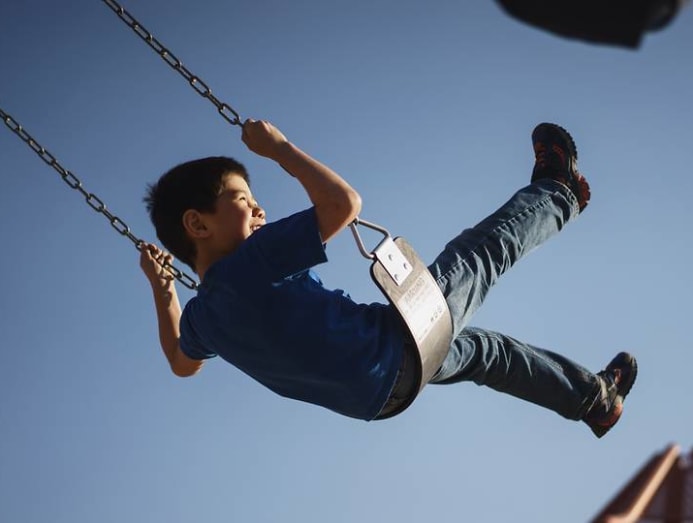Expert-approved, mood-boosting tactics to keep tweens from boredom
Here's how to be your tween's creative collaborator instead of the boss.

(Photo: Unsplash/Jude Beck)
The other day my 11-year-old told me how “bored” she is. I get it. School just ended and her beloved sleep-away camp has been cancelled.
While the country is opening up, a lot is still off the table for tweens. At first I offered suggestions for activities: Did she want to play with the puppy or call a friend? She did not.
“Boredom is not the result of a lack of things to do,” said the cognitive neuroscientist James Danckert, co-author of Out of My Skull: The Psychology of Boredom. “It’s a combination of mixed-up emotions that make them feel stuck, and an unoccupied mind that means they don’t feel purpose and aren’t expressing their abilities, interests and passions.”
John Eastwood, a psychologist and Danckert’s co-author, said the solution “has to come from the tweens; parents alone can’t fix it.”
But Mary Mann, author of Yawn: Adventures in Boredom, said there was a role for parents: “If your tween isn’t engaged in what they’re doing, you can help them figure out what will work.”
READ: No ‘me-time’, tired, stressed: How parents can cope with everyone being at home
So be a creative collaborator instead of the boss, to help kids find their strengths and talents. “Ask your tween, ‘What sounds good to you right now? When you let your mind wander, where does it go?’” If they enjoy video games, they might want to make their own. If they like board games, they can create one based on a book or movie they love. She also suggests looking at photos or videos that show them happy doing a specific activity.

“I believe that boredom is a gift,” said John Spencer, parent to three tweens, an assistant professor at George Fox University and consultant for Parent Lab, a company that offers online courses for parents.
Research shows when people’s minds wander (like when going for a run or walking the dog) or when they do rote, meaningless activities (like washing dishes or folding laundry), it is a natural path to creativity.
READ: Stressed out, mum and dad? This free app includes tips from a 'parent whisperer'

Even if you don’t want to practice “intentional boredom,” here are several boredom-busting, mood-boosting tactics from the experts.
LEND PERSPECTIVE WITHOUT A LECTURE
When tweens complain, instead of telling them what to do, share your experience and let them decide, Eastwood suggested. So say, “When I feel bored, what worked for me was to do a few minutes of deep breathing to get centered.” They may roll their eyes, but they can’t argue, because you aren’t dictating their actions.
GO FOR THE FLOW
Encouraging your tween to go for activities that help with healthy “flow” – when you are immersed in something to the point you lose track of time – can help, Danckert said. So reading a good book, making a vision board, journalling with daily prompts, sketching or knitting all work. Aside from flow, to beat boredom, “an activity should challenge you, while allowing you to problem-solve within your abilities (like playing chess or a scavenger hunt),” Danckert said. What doesn’t work: Passive entertainment like binge-watching YouTube or Netflix.
READ: Discipline looks different in a pandemic, here's what you can do
TRY SOMETHING NEW FOR A BETTER MOOD
Boredom is associated with a sense of time passing more slowly than normal. “Part of what we are taking away during the pandemic is the looking-forward-to-the-future aspect of life, in the form of trips or camp,” Mann said. So adding something new to the schedule that brings in mystery, or discovery – like doing an impromptu TikTok dance competition, eating outdoors for a change, or learning a new game like Pickleball – can provide a positive rush to the brain.
CREATE A NON-PERFECT PRESENT MOMENT
When tweens are being creative (drawing, doing computer art, writing rap songs), Mann suggests you don’t attach pressure to the outcome. “If your tween is creating a board game, writing a poem or painting and it doesn’t come out perfect, that is fine. Teach tweens to enjoy the process rather than attach importance to the final product.”
Dr Wendy Wood, a psychologist and author of Good Habits, Bad Habits: The Science of Making Positive Changes That Stick, said that to help our tweens avoid acting out negatively in response to boredom (like binge-eating junk food or screen surfing), parents should organise their environments to encourage positive behaviour. So hide away the junk food, but leave out apples. Make screens less accessible by asking them to either keep the computer out of the bedroom and in the public areas of the house, or have them use your computer, so you can monitor them.
On the flip side, make it easy for them to do things you want them to do, Wood suggests. Keep bike tires filled up. Have a Frisbee handy or a basketball available to shoot hoops. Have game nights. Keep books around that they would like to read.
My daughter has identified her twin passions as music and dance. When I challenged her to combine her interests, she came up with a great idea: During the summer, we’ll select visual prompts, from which she will create a short dance video on her phone several times a week.
For tweens who spent much of their pre-pandemic lives running from one activity to the next, it can be a challenge just to discover what actually engages them. Perhaps a bit of summertime boredom can be a springboard to permanent insight.
By Estelle Erasmus © The New York Times



